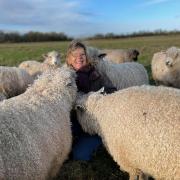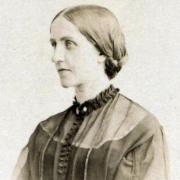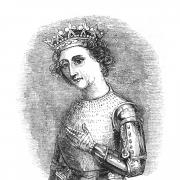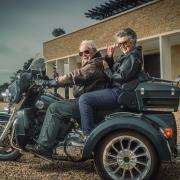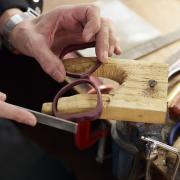Daniel Burton recalls the incredible bravery and the importance of the role played by The ‘Glorious Glosters’ in the Battle of The Imjin River 70 years ago
2021 marks the 70th Anniversary of the Battle of The Imjin River, which took place between April 22-25, 1951, during the Korean War. The 1st Battalion Gloucestershire Regiment was crucial in holding out for three nights against overwhelming odds in a defensive position behind the Imjin River, astride the main route south to Seoul. It was described by the then commander of the United Nations forces as ‘the most outstanding example of unit bravery in modern war’, and prevented the encirclement of other UN forces, for which the regiment was awarded the Presidential Unit Citation and earned the nickname The ‘Glorious Glosters’.
To commemorate the Glosters’ role in the battle, veterans from across the regiment’s most recent history, including its successor, The Rifles, share their experiences of battle, and the connection that bonds all servicemen across the generations.
Brian Hamblett, 90, joined the Glosters as part of his National Service in February 1950. By October, he arrived in South Korea as part of Support Company and the Medium Machine Gun platoon. He’d been told he would be ‘home by Christmas’, a false promise made worse by bitterly cold winter temperatures. At Imjin, he was stationed on his company’s flank, providing supressing fire. After tactical withdrawals to the hills around the Solma-Ri village, Brian and his company were completely cut off, and desperately short of ammunition. Despite this, Brian remembers his fellow soldiers were in good spirits and determined to hold out. Outnumbered and surrounded, the Glosters relied on American air support, and their own stubborn resilience to repel enemy forces.

Eventually, Brian was captured by Chinese forces, and marched hundreds of miles north to a POW camp, where he spent nearly two-and-a-half years. Brian remembered the atrocious living conditions that led to a dozen people every day dying from dysentery. Against the odds, Brian maintained his resilience, survived the testing circumstances, eventually being involved in a prisoner exchange. He was shipped back to England where, after a short period of leave, he re-joined the Gloucestershire Regiment, finishing his service in 1954, when he got married.
Fellow veteran Ken Fisher also endured tremendous hardship in a POW camp after the battle. At 18 he, too, joined the Glosters as part of his national service, becoming a Private in A Company and confessed to being one of its youngest and most inexperienced soldiers. Despite this, he said that being a Gloster meant he was surrounded by comrades who were well experienced and looked after him. His experiences of the POW camp mirror that of Brian’s. Ken survived the gruelling conditions and found his way to freedom. He has never forgotten his experience of the Korean War, and was particularly moved by the plight of the refugees and the shocking waste of civilian lives throughout the conflict. Of his own involvement he remains retiring and unassuming, however he believes that the refugees deserved medals for their courage.

The Glosters boast a rich heritage underpinned by family lineage. The Grist family has enjoyed three generations of military service, stretching from the late Digby Grist who served in Korea, to his grandson, Charlie Grist, currently a Colonel in the Rifles. Charlie describes the modest and stoic personality of Gloucestershire Soldiers, encapsulated by quoting British Brigadier Thomas Brodie’s radio message to the Americans: ‘things are pretty sticky down there’; an understatement of the Glosters’ position during the battle, where despite two days fighting and being surrounded by 10,000 Chinese soldiers, they refused to give in.
Digby was the Battalion’s Second in Command and worked tirelessly, driving through enemy lines under fire, being shot in the wrist. He earned a US Purple Heart, a medal he felt was better deserved by his comrades. Unassuming through life, Digby tried organising relief of the battalion using Filipino tanks, and one of his biggest frustrations was not being able to resupply the remnant battalion, casting little acknowledgment to his own bravery.
Seventy years on, Digby’s grandson Charlie believes that the resilience and tenacity of the Glosters at Imjin have been inherited throughout the successor regiments. His own experience with the Rifles has seen him deployed from Afghanistan to Kosovo, most recently with the Ministry of Defence tasking him with the Crisis Response to COVID 19.
The fraternal, cross-generational bond shared between servicemen and women of all generations stretches beyond just public duty. It gives the soldiers of the Glosters and Rifles a shared sense of purpose, characteristics that have made them an enviably effective military force.

It has remained strong through the efforts of former Glosters like Len Keeling, who is Parade Marshall of this year’s Glosters’ contingent at the Whitehall Cenotaph. Originally from Yorkshire, Len moved to Gloucestershire and joined the battalion in 1959, seeing service in Germany, Ulster, Cyprus, and the Congo. Following a distinguished military career, Len, like many veterans, regularly stays in touch with his fellow comrades.
On November 14, a Guard of 98 veterans will form up in Whitehall as ‘the Imjin 70 Guard’, comprising veterans from The Glosters, alongside some ex-RGBW and Riflemen. There will be two survivors of the battle marching – Tommy Clough and Brian Hamblett.
As a fitting tribute to their service, veterans of the Glosters and serving Rifles soldiers will march together as part of this year’s London Remembrance Day parade, a poignant symbol of the generations that connects them all. With the eyes of the country, and indeed the world, on them, the Glosters will once again proudly fly the flag for Gloucestershire as two nations give thanks for the county’s sacrifices.
Soldiers of Gloucestershire Museum, tel: 01452 522682, soldiersofglos.com









